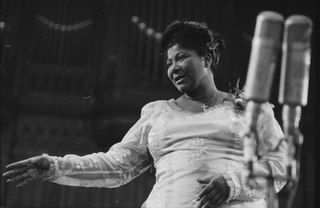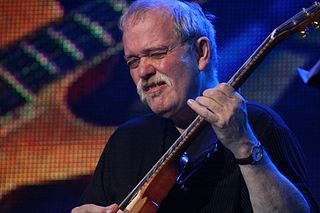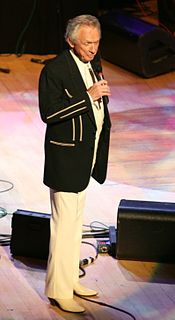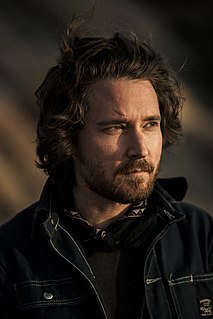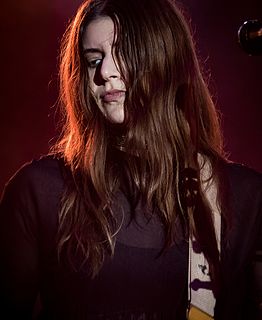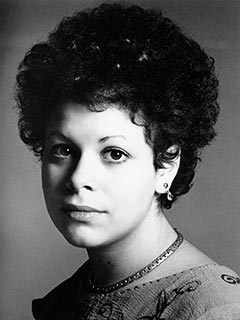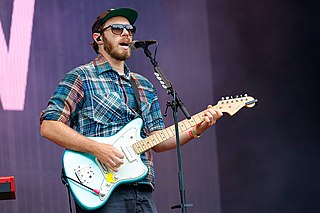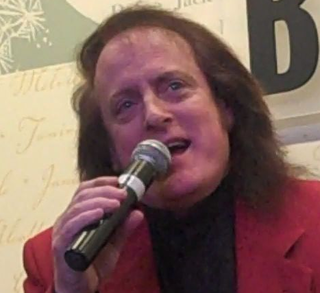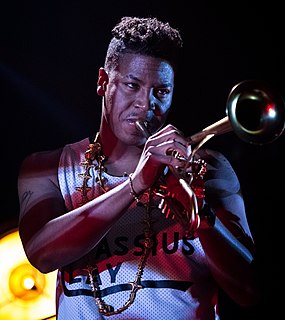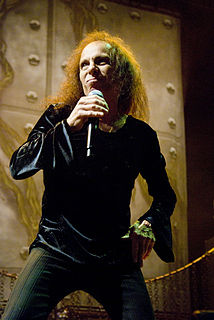A Quote by Frank Sinatra Jr.
I think in my generation, when I came along in the early '60s, the type of music that was in vogue in society in those days had moved on to another kind of music. I was trying to sell antiques in a modern appliance store.
Related Quotes
I'm trying to fly the flag for the days of electronic music where people who are making it are also building the gear because that was what was happening in the very early days of electronic music. And that spirit is one of the things that really appeals to me about electronic music so I'm putting this forward as a way to keep that.
I think there's a difference between the type of folk music that people put into the box of "folk music" and then there's the kind of folk music that I aspire to and am in awe of, and that is the kind of folk music where it's very limited tools - in most cases a guitar, in a self-taught style that is idiosyncratic and particular to that musician.
I think people assume that whatever kind of music you make is the music you listen to. Don't get me wrong, I listen to tons of pop music and all the music that really inspires Best Coast is very straightforward '50s and '60s pop music, but I've been listening to R&B and rap since I was a kid. I grew up in L.A. It's part of the culture. I listen to anything.
Music is what is going to save me," "On the bad days, when I have to look at the cold, hard facts of life, I see that this is not the music business I came up in and I have to be very, very objective and detached and say, 'what's good about it and what's bad about it?' Mostly, I'm finding it good that it's not the same old music business, because the music business I came up in really didn't advance anything I was doing, and I don't think it was particularly kind to a lot of artists.
There were two things I discovered when I toured with Snoop. One was that the band was all jazz musicians. The second was to instil in me a respect for other styles of music. From then on, whenever I played a new kind of music, I came with the same kind of open mind. What are they trying to do? What are they hearing? How do they see music?
Early on, before rock 'n' roll, I listened to big band music - anything that came over the radio - and music played by bands in hotels that our parents could dance to. We had a big radio that looked like a jukebox, with a record player on the top. The radio/record player played 78rpm records. When we moved to that house, there was a record on there, with a red label. It was Bill Monroe, or maybe it was the Stanley Brothers. I'd never heard anything like that before. Ever. And it moved me away from all the conventional music that I was hearing.
In the early eighties, there were a lot of artists involved with the music scene. All those young artists, before their careers took off, were into music. Robert Longo used to play some guitar. He had a band for a while. Basquiat had a band. I mean, people were always trying to mix music and art - in fact, I'm guilty of it myself.
I'm not quite sure. Probably because "Hanky Panky" and "I Think We're Alone Now" had more to do with it than anything else. For some reason, staccato eighth notes on a bass sounded like bubblegum. Basically, groups like the 1910 Fruitgum Co. took my early format and kind of perverted it, and made these mindless pre-fab hits over and over. In the 60s, anybody who was making commercial music, that is music that didn't have a political slant to it, or wasn't taking drugs, was bubblegum. And that term kind of hung on a lot of people back then, and it's unfortunate.
People call what we do "stretch music." This is our style, and one of the newer, in vogue ways of playing creative, improvised music. It really grew out of me trying to address something that I saw in my everyday life in my neighborhood - trying to develop that and refine that and excavate exactly what that was in a way that, when I communicated it, it was palpable and easily read. That started really early. Why it started was from something that I was really angry about.


